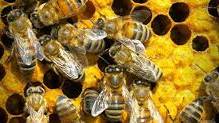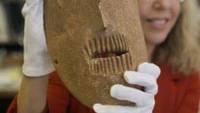Diesel Exhaust Masks Odors Honeybees Use to Forage and Pollinate
Source: natureworldnews.com

Exhaust from diesel engines has been shown to prevent honeybees from differentiating between the odors of flowers, according to new research from the University of Southampton.
Honeybees rely on floral odors to locate and identify the flowers they collect pollen from, but when the aroma of diesel exhaust fumes is present the odor profile of surround flora is masked.
University of Southampton researchers Tracey Newman and Guy Poppy suggest that such odor masking prevents the bees from recognizing odors vital to their survival. Because bees’ pollination endeavors are vital to the food system, the researchers contend that contamination of flora odors may affect honeybees’ foraging efficiency, which could in turn affect pollination levels, which could harm global food security.
"Honeybee pollination can significantly increase the yield of crops and they are vital to the world’s economy -- £430 million a year to the UK alone. However to forage effectively they need to be able to learn and recognize the plants," Poppy said.
The researchers set up an experiment which mixed eight chemicals found in the odor of oil in rapeseed flowers with clean air and air containing diesel exhaust. The odors of two of the chemicals disappeared completely when mixed with diesel exhaust air, and the other six reduced in volume. The odors mixed with clean air were unaffected.
When the same experiment was performed with nitric oxide and nitrogen dioxide (gasses found in diesel exhaust, referred to as NOx gasses), the same results occurred, which suggests that the gasses are key facilitators in how and why the floral odor’s profile was affected.
[...]
Read the full article at: natureworldnews.com






















